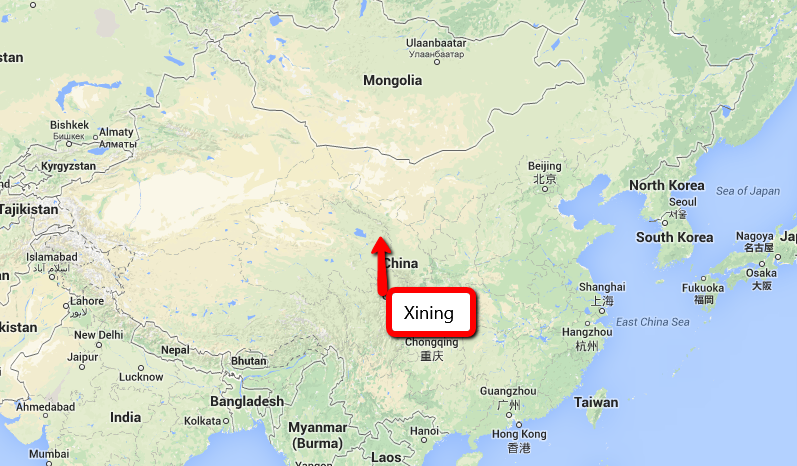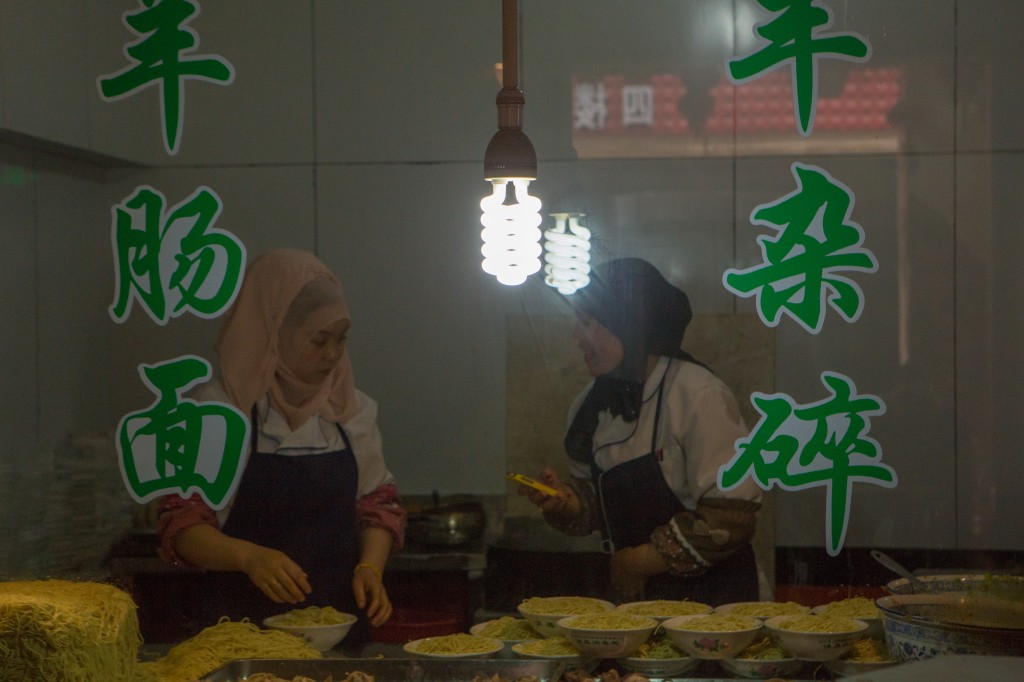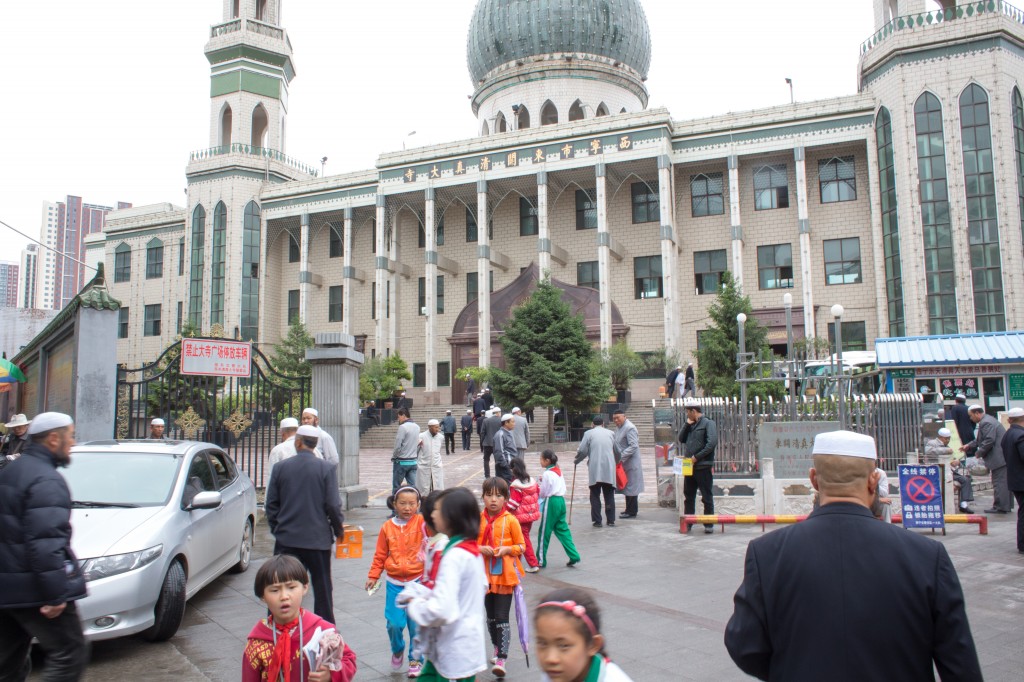Xining has a very Silk Road feel to the city. Qinghai, the province of which Xining is the capital of, is largely a Tibetan land, underpopulated, with vast stretches of wild, high deserts pockmarked with many mountains and almost no cities. However, Xining is dominated not by Tibetans but by Hui Muslims, the Chinese speakers who have a mix of Chinese and Central Asian ancestry. For several periods of time, when the Silk Road’s main route running through the Gansu Corridor was blocked by fighting or controlled by hostile powers, travelers would often swing around Xining, on the Tibetan Plateau, to avoid those dangerous stretches of the Gansu Corridor.
That Silk Road heritage is evident in the people’s faces. Features we saw in the people in the Muslim Quarter of Xian are more pronounced: the paleness of the skin, the prevalence of mustaches and facial hair, the roundness of the eyes. I stopped by the province’s largest mosque to watch the men gathering for Friday prayers. Children, their eyes wide and their skin light, scurried past me on their way home from school. Men in round white hats poured into the gated mosque as the call to prayer rang through the green minaret’s loudspeaker. A group of men stood around a three-wheeled cart where a man was selling prayer rugs in an alley by the mosque’s main gate. With each turn of the pedestrian light, more men flooded across the street and poured into the mosque. Women in head scarves and high heels strolled past me.
Even today, the Silk Road has left its mark on this place.


